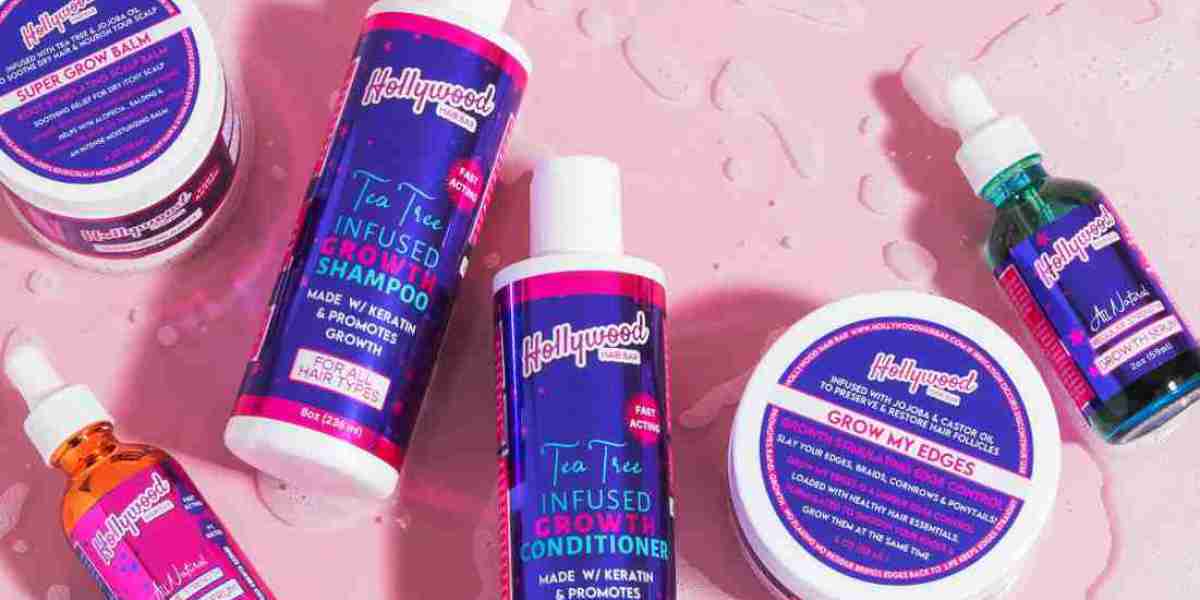Hair growth serums have gained immense popularity in recent years as an effective solution for promoting top rated hair growth serum health and combating hair loss. With a plethora of products available in the market, selecting the right serum can be overwhelming. This article delves into the world of hair growth serums, providing a detailed guide to help you understand their benefits, ingredients, usage, and much more.
Types and Categories of Hair Growth Serums
Natural Hair Growth Serums
Natural hair growth serums are formulated with plant-based ingredients and essential oils known for their nourishing properties. They are ideal for those seeking a chemical-free option to boost hair health.
Chemical Hair Growth Serums
These serums contain scientifically-backed compounds like Minoxidil and Finasteride, which are proven to stimulate hair growth and prevent further hair loss. They are typically recommended for severe hair loss conditions.
Prescription Hair Growth Serums
Available only through a healthcare provider, these serums contain potent active ingredients that require medical supervision due to their potential side effects and interactions with other medications.
Symptoms and Signs of Hair Loss
Hair loss can manifest in various forms, and recognizing the early signs is crucial for effective treatment.
Thinning Hair
Gradual thinning of hair, especially on the top of the head, is a common sign of hair loss in both men and women.
Receding Hairline
A receding hairline, particularly noticeable in men, is often the first sign of male pattern baldness.
Bald Patches
Sudden appearance of bald patches can indicate alopecia areata, an autoimmune condition that requires medical attention.
Excessive Shedding
Losing more hair than usual during brushing or washing can be a symptom of telogen effluvium, often triggered by stress or hormonal changes.
Causes and Risk Factors of Hair Loss
Understanding the root causes of hair loss can help in selecting the most appropriate treatment.
Genetic Factors
Hereditary conditions like androgenetic alopecia are the most common cause of hair loss in both men and women.
Hormonal Changes
Hormonal imbalances due to pregnancy, menopause, or thyroid disorders can lead to temporary or permanent hair loss.
Medical Conditions
Conditions such as alopecia areata, scalp infections, and trichotillomania (hair-pulling disorder) contribute to hair loss.
Nutritional Deficiencies
Lack of essential nutrients like iron, zinc, and vitamins can weaken hair and lead to shedding.
Stress and Lifestyle
Chronic stress, poor diet, and harmful hair practices can significantly impact hair health.
Diagnosis and Tests for Hair Loss
Accurate diagnosis is key to effective treatment. Here are common diagnostic methods:
Scalp Examination
A thorough examination of the scalp and hair condition by a dermatologist.
Blood Tests
Tests to detect underlying conditions like thyroid disorders or nutritional deficiencies.
Pull Test
A gentle pull test helps determine the stage of the shedding process.
Biopsy
A scalp biopsy can be performed to diagnose conditions like alopecia areata or fungal infections.
Treatment Options for Hair Loss
There are various treatment options available, ranging from medical treatments to lifestyle changes.
Topical Treatments
These include Minoxidil and other hair growth serums that are applied directly to the scalp.
Oral Medications
Prescription medications like Finasteride are taken orally to combat hair loss from within.
Hair Transplant Surgery
A more permanent solution involving the transplantation of hair follicles from one part of the body to the balding areas.
Laser Therapy
Low-level laser therapy (LLLT) is a non-invasive treatment that stimulates hair growth.
Lifestyle and Home Remedies
Incorporating a healthy diet, stress management, and proper hair care routines can significantly improve hair health.
Preventive Measures for Hair Loss
Preventive strategies can help maintain hair health and reduce the risk of hair loss.
Balanced Diet
A diet rich in vitamins, minerals, and proteins supports healthy hair growth.
Proper Hair Care
Use gentle hair care products, avoid excessive heat, and minimize chemical treatments.
Stress Management
Practices like yoga, meditation, and regular exercise help manage stress levels, which can impact hair health.
Personal Stories and Case Studies
Real-life experiences provide valuable insights into the effectiveness of various hair growth treatments.
Success Stories
Individuals who have successfully combated hair loss share their journeys and treatment regimens.
Challenges Faced
Stories of those who have faced challenges in their hair growth journey, highlight the importance of persistence and proper diagnosis.
Expert Insights
Expert opinions from dermatologists and trichologists on the best practices for hair growth.
Dermatologist Tips
Professional advice on choosing the right products and treatments.
Trichologist Recommendations
Insights from hair specialists on maintaining scalp health and promoting hair growth.
Conclusion
Hair growth serums offer a promising solution for those struggling with hair loss. By understanding the types, causes, treatments, and preventive measures, you can make informed decisions to achieve healthier hair. Consult with healthcare professionals to tailor treatments to your specific needs and embark on a journey towards better regain hair growth serum health.








